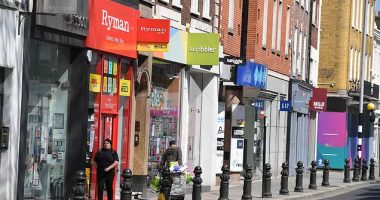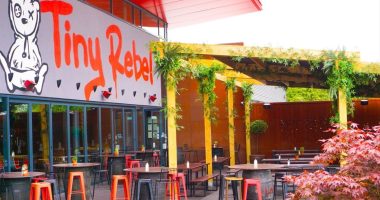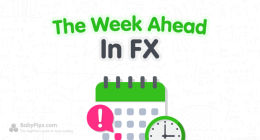SHOPPERS will want to know which products have been hit by shortages and ration limits as farmers have warned of a food crisis.
Supermarkets have warned customers that some staple grocery items are in short supply.
Shortages are due to a number of reasons – this includes the Russia-Ukraine crisis, soaring energy bills and more.
It means that farmers have issued warnings about a new food crisis that could spark further price hikes and supply issues, according to the Daily Mail.
Fridge staples like chicken, pasta, beer, sausages and bread could be affected, according to reports.
It means you might not be able to get the exact brand you want, you might be limited on how much you can buy, or you might find some items are in short supply on the shelves.


We explain which products have been hit by shortages and ration limits – and what it means for shoppers.
What is being rationed?
So far, it is just cooking oil that has been rationed.
Supermarkets like Tesco, Iceland and Morrisons have started to limit how many bottles you can buy.
Most read in Money
Tesco shoppers can only buy three bottles of oil across its entire cooking oil range, while Morrisons and Waitrose shoppers can only buy two.
Iceland, meanwhile, has put in place a one bottle limit.
Concerns have been raised about the supply of cooking oil due to the Russia-Ukraine crisis.
Ukraine and Russia make most of the world’s sunflower oil, but the ongoing war has majorly disrupted production.
Because it is in short supply, prices have been pushed up as a result – it is thought customers are now paying 10% more for their bottles.
It’s also had a knock-on effect on big brands like Walkers, who has had to change the recipe of its crisps because it uses sunflower oil.
Retail trade association BRC said: “Some retailers have introduced limits on the number of bottles customers can buy as a temporary measure to ensure availability for everyone.
“Retailers are also working with suppliers to ramp up production of alternative cooking oils, to minimise the impact on consumers.”
Which products are in short supply?
A number of products are in short supply – but so far, no limits have been placed on them.
Tomatoes
For example, supermarkets including Tesco and Asda have run out of some varieties of tomato.
Bosses say it is due to problems including energy bills hikes, bad weather and militant truck drivers.
It means suppliers have been unable to produce as much because the cost of growing the veg has soared.
While heavy rain in Spain and lorry driver strikes has only fuelled a slow down in production and delivery further.
It means that shoppers are paying a whopping 60% more for the salad staple.
Eggs
Fears have been sparked about the supply of eggs as well.
It’s because there might not be enough farmers to plug demand as it’s costing much more to produce them.
Farmers are being hit by rising prices for chicken feed as well as spiralling energy costs – which is hitting their bottom lines.
The British Free Range Egg Producers Association (BFREPA) said “scores “ of farmers are considering stopping work at the end of their current flock.
It said some farmers are actually losing money for every egg laid.
Customers are being hit by rising prices as a result.
The cost of free range eggs has gone up by at least 40p per dozen, while a pack of organic eggs are up 80p.
Bread and beer
A potential wheat shortage could mean you might find it harder to buy the bread or beer you want.
It’s because Russia and Ukraine produce nearly a third of the world’s total wheat supply.
But because of the ongoing war, experts have warned a supply crisis could build.
Is there going to be a food crisis?
Although experts have raised concerns about shortages, it’s important that shoppers do not panic.
Just because a product is in short supply or is limited in stores does not mean shelves will be bare like they were during the peak of the Covid pandemic.
While it might mean the exact variety of product you want may not be in the shops, it doesn’t mean you won’t be able to get it at all.
What could it mean for me?
Shortages and limits on products could potentially mean you’ll pay more at the till for your shopping.
Karen Betts from the trade body Food and Drink Federation told the Daily Mail that war and sanctions could “translate into food price rises”.
And as the country battles against a cost of living crisis, soaring energy bills and price increases are hitting suppliers too.
It means it is costing companies much more to make the products we want – and many have warned about price increases.
Heineken, the world’s second biggest beer producer behind big labels like Foster’s, Sol, John Smith’s and Amstel, warned customers will be paying more for their booze.










